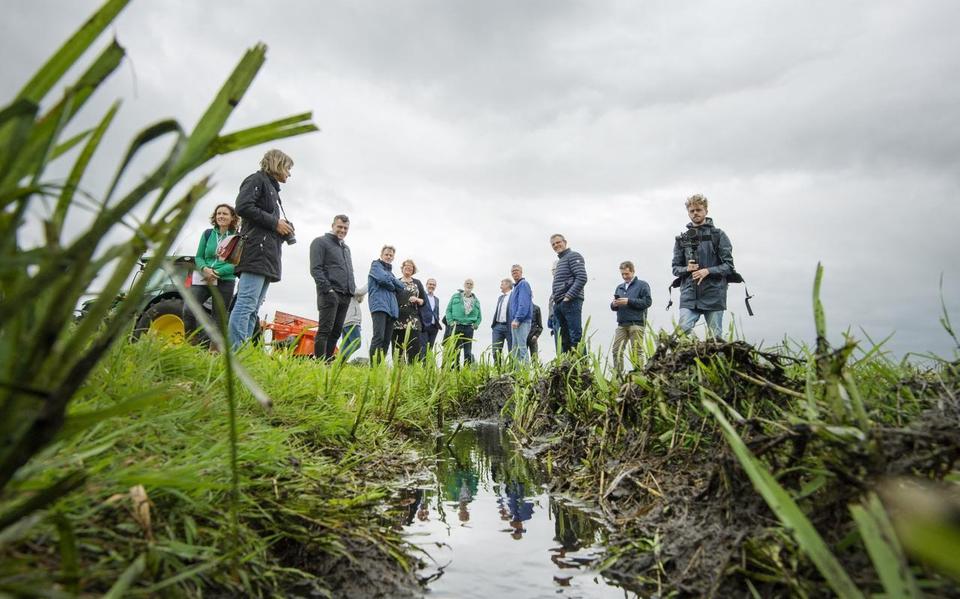Case Study: the first sale of carbon credits from peatland rewetting in the Netherlands has been a huge success. In 'De Lytse Deelen', the first trade in voluntary CO2 certificates recently took place.
The concept of carbon credits for peatland rewetting has been around for at least five years, but since early July 2020 it became possible to earn money by increasing the water level in peatland areas.
Organic farmers had already raised the water level in 'De Lytse Deelen' area a year ago. If this had not happened much more carbon would already have been lost.
Last year, the example of 32 hectares of managed peatland, helped to persuade the Dutch Government that this was a valid way to reduce CO2 emissions. .
Since then, hard calculations have been made on the actual CO2 reduction that can be expected in 'De Lytse Deelen', now that the ditch level is just below ground level. The result of these calculations is a reduction in GHG emissions of 4,370 tons over ten years. That figure is the product of standard calculations by Radboud University in Nijmegen, controlled national measurements and testing by the Groningen climate knowledge center JIN Climate & Sustainability.
This means that it can now be said that there is a certified revenue model in the Netherlands for the rewetting of peatlands. In this case, a target price of €70 per ton applies to companies and private individuals who want to compensate for their own CO2 emissions. That amount is based on the investment and the reduced yield of the land.
The credits are almost sold out for the first year. One of the main purchasers wants to remain anonymous. The other is XT Orange from Etten-Leur, an innovative company in 'pallet stabilization', safely wrapping loaded pallets in polyethylene foil. The company uses a special foil and a method that saves 70 percent plastic. In doing so, it hopes to do good business on the European market, where 650,000 kilos of foil are now used annually for the manual wrapping of pallets.
This scheme is only at the beginning. The effectiveness of the scheme is measured by a system of monitoring wells and measurements of CO2 emissions. Six more projects are now being prepared in Friesland and eight initiatives are being prepared nationally for the peat meadow provinces of North and South Holland, Overijssel and Utrecht. An online sales platform for CO2 certificates is under construction, under the auspices of the joint nature and environmental federations. Landowners are very interested. There is already a waiting list. The start of the sale has led to great celebrations.
More information about formal conditions for this voluntary carbon credit market for peat rewetting, you can find here.

